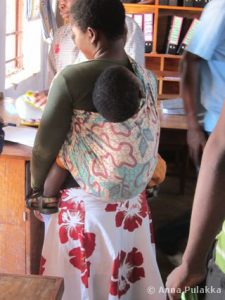The iLiNS project is an international research collaboration that grew out of a shared commitment to accelerate progress in preventing child malnutrition. The project involves clinical trials in Burkina Faso, Ghana, and Malawi. Our research group, together with scientists from the University of Malawi, is coordinating two of the iLiNS trials.
The iLiNS-project was built on earlier work with lipid-based nutrient supplements (LNS) in Ghana and Malawi (see the LCNI-trials), suggesting that provision of such supplements could improve healthy growth among infants and young children in low-income populations.
Of the two trials our group is co-coordinating, iLiNS-DOSE (registration number NCT00945698) is a 6 arm-dose finding trial, in which a total of 1932 healthy six-month old infants were randomized to receive for 12 months either a delayed intervention or one of five alternative formulations and daily dosing regimens of LNS. The main outcome measure is length gain during the intervention, but there are also numerous secondary outcome measures, such as a new technique to assess physical activity when the children are approximately 18 months old. Child growth will be monitored also during a 2-year post-intervention follow-up period. Several observations sub-studies assess the social and economic feasibility of the LNS intervention in early childhood.
iLiNS-DYAD (registration number NCT01239693) is a 3 arm trial, in which we enrolled a total of 1391 pregnant women. The primary purpose of this trial is to assess if healthy growth can be promoted and infant stunting (linear growth retardation) prevented by provision of nutrient and energy-dense lipid-based nutrient supplements (LNS) to the mother-baby dyad during gestation, lactation and in infancy.
To address the study question, the enrolled women were randomized into receiving either standard antenatal care (which includes supplementation with iron and folate containing capsules), supplementation with multiple micronutrient capsules, or supplementation with LNS. The women continued to be supplemented during the first 6 months of lactation and LNS intervention was continued for children in the LNS group also from age 6 to 18 months.
The main outcome variable in iLiNS-DYAD is child length at 18 months of age but maternal and child health is documented also with a wide array of other variables. Several observational sub-studies assess the social and economic feasibility of the maternal LNS intervention. An add-on component look at the predictors of intrauterine growth retardation and preterm delivery, with special reference on oral, reproductive tract and placental infections and inflammation. A second major set of add-on studies investigates the development of infant intestinal microbiota and its association to child growth and nutritional status (the BMMI project).
